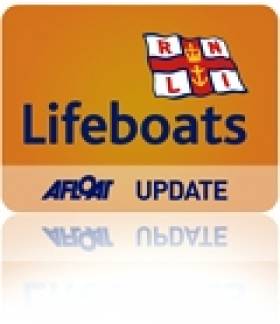Displaying items by tag: sea sickness
11 Kayakers Rescued by Portrush Lifeboat
The callers stated that they could see a group of twelve kayakers in difficulty off Portballintrae, Causeway Coast, Northern Ireland.
Belfast Coastguard called out the Coleraine Coastguard Rescue Team and requested the launch of the Portrush RNLI lifeboats.
On arrival the Coleraine Coastguard Rescue team kept the kayakers under observation and directed the Portrush RNLI inshore lifeboat to the Kayakers. It was quickly established some of the group had become exhausted and suffering from sea sickness. Eleven of the group where transferred onto the large all weather Portrush Lifeboat whilst the Inshore Lifeboat escorted the one remaining kayaker back to Portballintrae Harbour.
The Portrush Lifeboat then transferred the eleven rescued kayakers who were mainly teenagers to the safety of Portrush Harbour.
Luckily none of the group required any medical attention.
Portrush lifeboat station adds:
Weather conditions were blustery and there was quite a swell off the coast. There was a North West wind coupled with a strong ebb tide. The tide was flowing against the wind, making conditions for the kayakers extremely difficult to return to shore. The Inshore Lifeboat (ILB) was launched first but it became clear the All-weather Lifeboat (ALB) was going to be needed to assist with the recovery of the party.
The ILB recovered 3 kayakers and returned them to Portballintrae. The ALB recovered the rest of the party and took them to Portrush Harbour.
The kayakers are safe and well, apart from suffering chronic sea sickness
Robin Cardwell Lifeboat Operations Manager said
'The fast response of the volunteer RNLI Lifeboat Crews from Portrush Station undoubtedly saved the lives of these kayakers. The sea and wind conditions made it virtually impossible for them to return to shore. Without the fast response of the crews at Portrush, this would have had a very different outcome'
























































